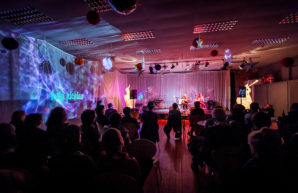Let’s Create!
Posted by Sandra Wood on 28 January 2020
A new decade and already much is changing. The Arts Council has brought out a fresh strategy covering 2020-30. For all of us in the arts, for all of us who care about creativity, this is a key moment that will set the tone for cultural life in the decade ahead.
At the heart of the strategy is an idea that is possibly the most radical in the Arts Council’s history if it is really to be acted on in the years to come. That is that culture is everywhere if you only care to look, creativity belongs to all, that we should challenge the hierarchies of high and low art, that big cities and institutions are not necessarily the heart of cultural activity. The springing off point for the thinking are conversations with the public who often see art as elitist and ‘high art’, so not for them, when if you just ask in a different way, you find they have rich cultural and creative lives.
It’s not like that the Arts Council hasn’t acknowledged the work of those of us who have recognised that in the past. Over the last 18 months alone, More Music has presented festivals on beaches and in local parks, streetbands echoing through shopping centres, we’ve inspired children in libraries, in schools, shared songs over scones and food at Eid parties. Our work continues to be in and of places, and the people in and of them. None of that would be happening without the Arts Council’s support.
Lancashire in particular has a rich history of companies that operate in this way. Horse and Bamboo, Ludus, Mid-Pennine Arts, Burnley Youth Theatre all have been emphasising that art belongs to all and everywhere for some time. Organisations like In Situ and Deco Publique have been reinventing what an arts company is and embracing everything from political discussion to industrial making. If we are serious about rebalancing the sense of cultural perceptions in this country, venerable institutions in big cities should acknowledge that they have, in fact, much to learn from us. I look forward to the Arts Council helping that process.
The strategy acknowledges that there has been inequity in how resources have been allocated, and that access for many is still unequal. It is important to recognise that this has a much wider context than is within the Arts Council’s immediate power to fix. Even within the North, the support that Manchester companies receive is utterly beyond the Lancashire companies just a few miles up the M6. Much of the political story of the last 4 years has been about how there is a country of towns and villages out here that feel utterly disconnected and disenfranchised. Art and culture is good at addressing this in a way that lasts longer that a leaflet thrust through the door at election time. But really financing an equitable cultural policy will require a step change from many partners from local government to commercial creative industry partners.
Of course, the Arts Council is right to challenge arts organisations too, and to call to action. Yes, it is not good enough that the cultural landscape does not yet properly reflect the glorious rich diversity of our nation. We need to act much quicker to ensure young people get access to great quality creative opportunities. We don’t need to wait for outside forces to make this strategy happen, we must act with urgency. If we believe that what we want is to let creativity happen, then let’s find the way to let all create.
